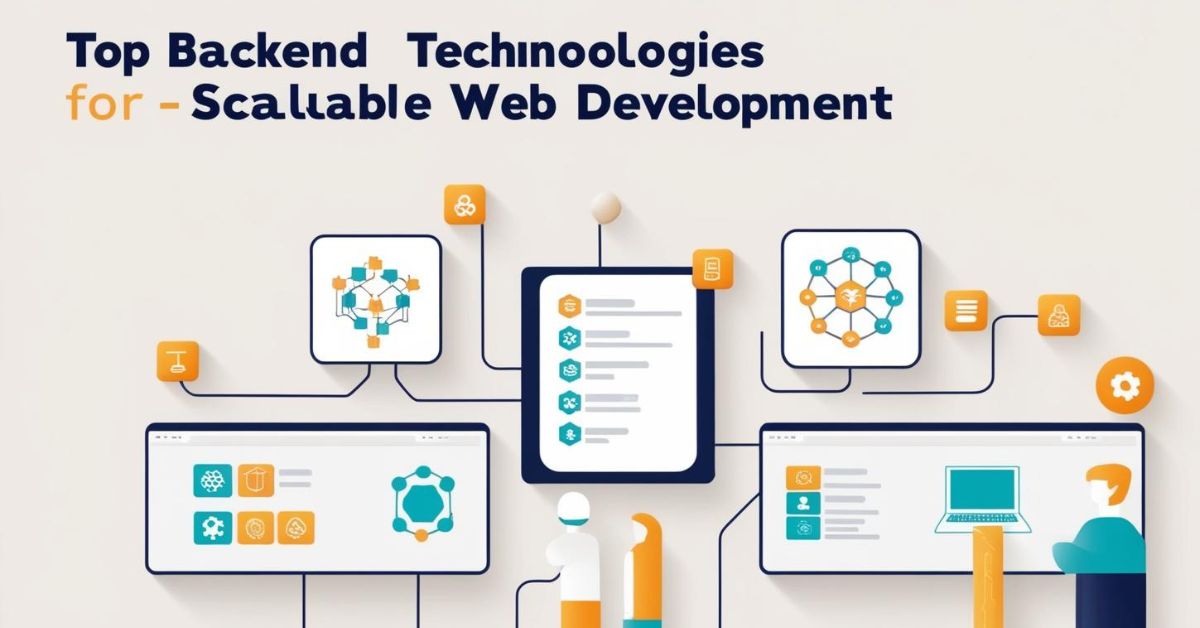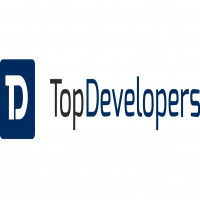Top Backend Technologies for Scalable Web Development

Strong 8k brings an ultra-HD IPTV experience to your living room and your pocket.
In today’s fast-evolving digital landscape, scalable backend technologies are crucial for building web applications that can grow with your business. A scalable backend ensures that as your user base expands, your application can handle the increased load without compromising performance. Choosing the right backend technology is key to building a robust, flexible, and future-proof solution.
Scalability is vital for any web application, whether you are running an e-commerce platform, a social network, or a data-driven service. With the right backend technologies, you can scale vertically (by adding more resources to a single server) or horizontally (by adding more servers). A well-scaled backend ensures smooth user experiences, even during traffic spikes. It supports the growth of your application without requiring significant rework or frequent downtime.
When selecting backend technologies, you must consider factors like speed, flexibility, and support for future growth. Look for frameworks that offer strong community support and are well-documented, as these will make it easier to resolve issues and add new features. You’ll also want to ensure that the technology you choose aligns with your team’s skills and expertise. Lastly, prioritize frameworks that are easily integrated with modern tools and technologies, as this will help your web application stay adaptable as new innovations emerge.
1. Node.js
Node.js is an asynchronous, event-driven backend technology that has gained popularity for handling high concurrency applications. Its non-blocking I/O model allows it to efficiently process multiple requests simultaneously, making it ideal for real-time applications like chat apps, live updates, and streaming services.
The architecture of Node.js supports scalable, high-performance applications by using a single thread to manage multiple tasks. Its event-driven nature ensures that the server can handle many requests at once without crashing or becoming overloaded. This makes Node.js an excellent choice for businesses that need to scale their web applications quickly.
In addition to its performance, Node.js benefits from a vibrant community and vast library of modules available through npm (Node Package Manager). These features make Node.js a popular choice for developers looking to build fast, scalable applications.
2. Django
Django is a Python-based backend framework that emphasizes rapid development and clean, maintainable code. It comes with built-in security features like SQL injection protection, cross-site scripting, and clickjacking protection, making it a top choice for web applications that require a high level of security.
Django's architecture is highly scalable, allowing developers to handle large amounts of data and users without compromising performance. With its modular design, Django can be customized to fit specific project needs, whether you’re building a content management system or an e-commerce platform.
The framework’s flexibility allows it to integrate with other technologies, including APIs and databases. It also offers automatic admin interfaces, which simplify content management. For businesses focused on building secure and scalable applications, Django is a reliable solution that ensures long-term scalability.
3. Ruby on Rails
Ruby on Rails is a popular backend framework known for its “convention over configuration” philosophy. This approach reduces decision fatigue and streamlines the development process. Rails sets sensible defaults for many aspects of development, allowing developers to focus on writing application-specific code rather than managing configuration settings.
Ruby on Rails is highly efficient for rapid development, enabling teams to build applications quickly without sacrificing quality. It includes features like automated testing and a vast set of pre-built tools, which help speed up the development process. This framework is particularly suitable for startups and businesses looking to get their applications to market fast.
Scalability is also a strong suit of Ruby on Rails, especially when paired with cloud-based solutions. With its easy integration with databases and other services, Rails supports the growing needs of your business without requiring a complete rewrite.
4. Laravel
Laravel is a PHP framework known for its elegant syntax and developer-friendly tools. It is built with the aim of making web development easier and more efficient. Laravel’s syntax is clean and expressive, which allows developers to write code that is easy to read and maintain.
One of Laravel’s key features is its built-in support for caching and authentication. These tools help enhance application performance by reducing the load on databases and speeding up response times. Laravel also integrates well with various third-party services, which makes it a flexible choice for building scalable applications.
With a strong community and plenty of resources available, Laravel continues to be a favorite among PHP developers. Whether you’re building small websites or large-scale enterprise applications, Laravel offers the tools you need to create secure, high-performing web applications.
5. Spring Boot
Spring Boot is a Java-based framework designed to simplify the development of production-ready applications. One of its main features is the ability to build microservices, making it perfect for businesses that require scalability and flexibility in their architecture.
With Spring Boot, developers can quickly set up and deploy applications without needing extensive configuration. The framework supports a wide range of tools and libraries that facilitate the integration of various services, including databases, messaging systems, and APIs. This versatility makes Spring Boot a strong choice for businesses aiming to build robust and scalable applications.
Spring Boot’s focus on performance and ease of use makes it a go-to framework for Java developers. The ability to easily scale and manage microservices is one of the main reasons why Spring Boot continues to be a leading choice for scalable web development.
6. Express.js
Express.js is a minimalist backend framework for Node.js that offers flexibility and simplicity. It provides a lightweight approach to building web applications, allowing developers to focus on functionality rather than boilerplate code.
One of the standout features of Express.js is its ability to create scalable applications with minimal effort. Express makes routing, middleware integration, and handling HTTP requests simple, which allows developers to rapidly build and modify web services.
Express.js is particularly well-suited for lightweight applications like APIs and single-page apps, where performance and speed are critical. Its minimalistic approach doesn’t add unnecessary overhead, ensuring that developers can create fast and efficient solutions that can easily be scaled.
7. Flask
Flask is a lightweight Python-based framework that is designed for simplicity and flexibility. It provides the essentials for building web applications without including unnecessary features, making it an excellent choice for developers who want to have more control over their applications.
Flask is particularly well-suited for building microservices due to its minimalist approach. It’s easy to scale, making it a great option for businesses that expect their applications to grow over time. Flask allows developers to integrate easily with other tools and technologies, making it adaptable to various use cases.
The framework’s lightweight nature doesn’t compromise its power. Flask is a great choice for those looking to build scalable applications with minimal setup, whether it’s a simple website or a complex API service.
8. ASP.NET Core
ASP.NET Core is a cross-platform framework from Microsoft designed for high-performance web applications. It is particularly well-suited for large-scale applications, providing developers with a robust set of tools and libraries that make building scalable systems easier.
One of ASP.NET Core’s main advantages is its cross-platform support, which allows it to run on Windows, Linux, and macOS. This flexibility makes it a popular choice for businesses that need to develop applications across different environments.
With its focus on high performance, ASP.NET Core is ideal for applications that require fast processing times and the ability to scale to meet growing demands. Whether it’s an enterprise application or a high-traffic website, ASP.NET Core can handle the load and ensure smooth performance at scale.
Conclusion
Choosing the right backend technology is critical for the success of any web development project. The ideal technology stack depends on various factors, such as the project’s scale, complexity, and specific requirements. For instance, if your application demands high concurrency and real-time capabilities, Node.js might be the best choice. On the other hand, if security and rapid development are key priorities, Django or Ruby on Rails could be more suitable. It’s essential to assess the needs of your business and select the technology that aligns with both short-term and long-term goals.
When selecting a backend framework, consider your team's expertise and the community support available for the technology. You should also evaluate scalability, performance, and ease of integration with other tools and technologies. Ultimately, the right framework will not only support your current needs but also enable your business to grow seamlessly.
Looking ahead, backend technologies are continuously evolving to meet the demands of modern web applications. Trends like serverless computing, microservices architecture, and containerization are gaining traction, allowing businesses to build scalable and efficient systems. Additionally, artificial intelligence (AI) and machine learning (ML) are expected to play a more significant role in backend technologies, enhancing the functionality of web applications.
For businesses seeking to stay ahead in the competitive digital landscape, working with a top web development company can provide the expertise needed to choose the best backend technologies for your project.
Note: IndiBlogHub features both user-submitted and editorial content. We do not verify third-party contributions. Read our Disclaimer and Privacy Policyfor details.


